MSC: a profile of one of Europe’s worst polluters
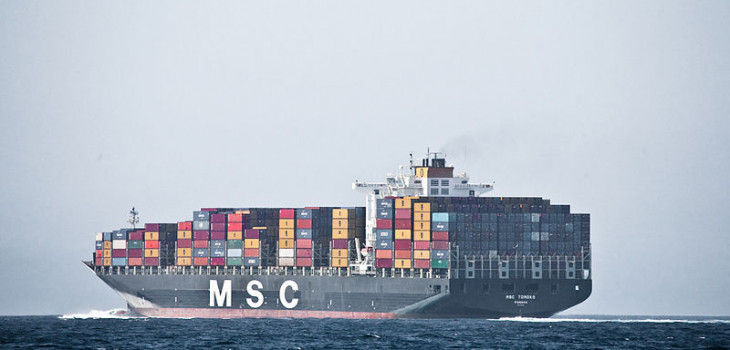
The European Network of Corporate Observatories, of which Corporate Watch is a member, has released a new report: The Corporate Silk Road: A New Era of (e-)Infrastructure in Europe? It looks at the effects of infrastructure “mega-corridors” being built across Europe, and the impact of investments by the Chinese state and corporations in them.
As part of this, we have profiled MSC, one of the world’s biggest shipping companies. You can read our profile below. Click here to read the full ENCO report.
ENCO will be holding a webinar on the report on Wednesday 27 January, 4-5.30 pm. To attend, please register by email: contact(at)corpwatchers(dot)eu
MSC and container shipping: spilling, polluting and exploiting
The Mediterranean Shipping Company (MSC) is one of the world’s biggest shipping companies. Its massive vessels transport containers full of goods across the globe, spewing out pollution as they go and making a fortune for its owners, the billionaire Aponte family. The expansion of ports and ‘mega-corridors’ are good news for them: more ports and more trade means more shipping. They also make money directly from their investments in the ports themselves. Following on from Re:Common’s report on the ‘New Silk Road in Italy’, we now look at MSC in detail, looking at the company’s operations, the people behind it and its devastating impact.
MSC is most famous for its cruise ships. Its MSC Cruises division carries passengers – mostly Europeans – around the globe in its huge ships offering cinemas, Cirque du Soleil shows, water parks, mini-Legolands, and celebrity chefs and hairdressers. Football fans may also know MSC as a sponsor of the Sorrento, Napoli Chelsea or Paris Saint-Germain teams. Cruise ships are renowned for producing enormous quantities of pollution, in the form of NOx, sulphur dioxide, particulates, sewage and of course huge quantities of carbon dioxide. It has been estimated that one cruise ship emits as many air pollutants as five million cars going the same distance.
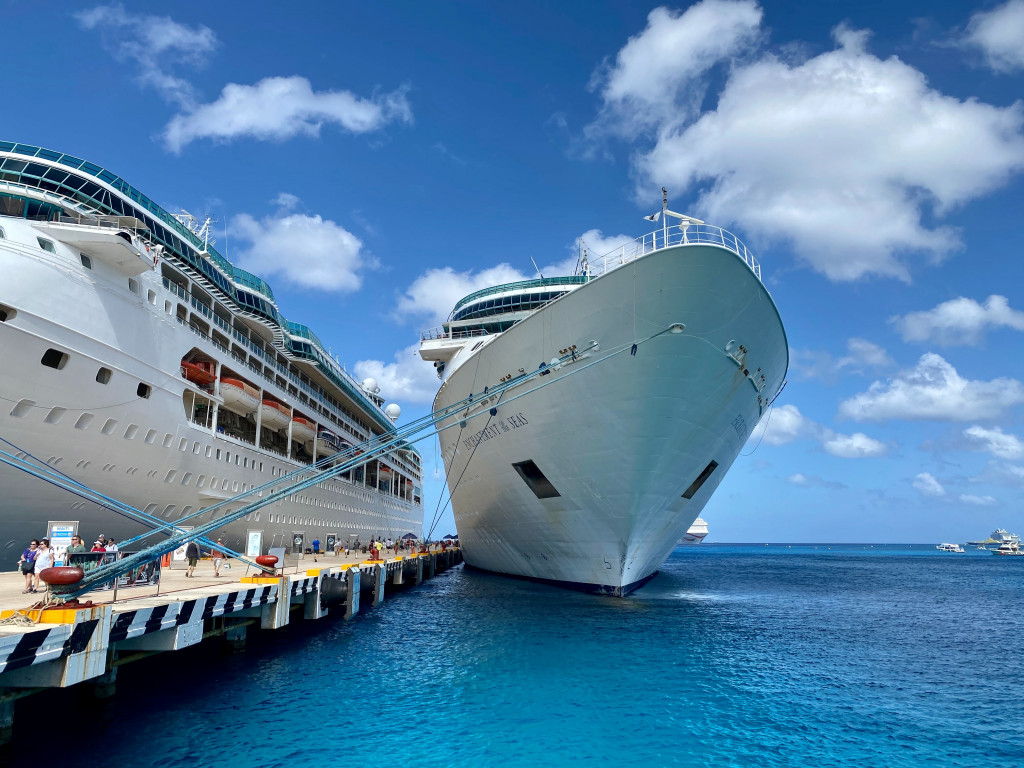
However, the bulk of MSC’s money comes from the less glamorous world of container shipping. Global capitalism depends on shipping. Around 80% of world trade is carried on the seas and oceans. The majority goes by container ship. Food, car parts, stuff from Amazon – if you’re buying something that was made overseas, there’s a good chance it was brought on a container ship. And what ships. MSC’s biggest ship, the Gulsun, one of the largest in the world, is 400 meters long with 232,618 gross tonnage.
The environmental impact of these vessels is colossal. NGO Transport & Environment reckons MSC is Europe’s eighth biggest corporate polluter with its ships emitting 11m tonnes of C02. MSC and Ryanair are the only companies in the top ten that aren’t running coal-fired power plants. Statistics of environmental impact from the sector are stunning. Shipping accounts for around 3% of global CO2 emissions, and its contribution is expected to rise significantly. Of total global air emissions, shipping accounts for 18 to 30 percent of the nitrogen oxide and 9% of the sulphur oxides.
MSC ships have also been involved in specific environmental disasters. In 2010, for example, the MSC Chitra collided with another ship off the coast of Mumbai and spilled 700 tonnes of oil into the sea. Mangroves and marine life were “completely wiped out” in nearby areas, according to the Times of India. MSC then fought attempts to make it pay compensation in court.
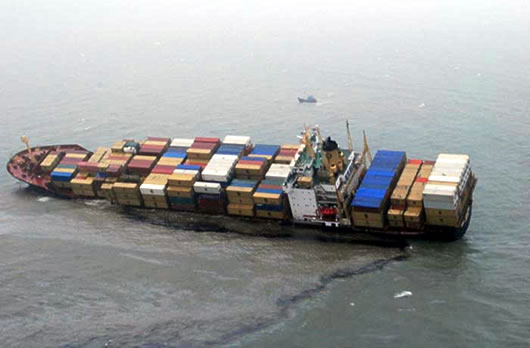
Image of the Chitra Shipping Disaster from https://shipwrecklog.com
Containers can also fall from the ships. In the last two years, MSC ships have lost 270 containers in the North Sea and 20 containers off the coast of South Africa. After the North Sea spill the Dutch Coast Guard issued a warning that three containers contained hazardous, potentially explosive materials.
The effect of the Cruise division is also severe. In 2019, the MSC Opera collided with a small tourist boat and damaged the quayside of Venice’s Guidecca Canal. Residents had long been calling for such ships to be banned due to the damage and flooding they were causing and protests after the MSC crash led to the government banning them from the centre of the city.
Meanwhile, the COVID pandemic has highlighted treatment of workers, with management insisting some workers stay on board ships without pay.
The shipping cartel
Shipping is dominated by a few very big companies. The top 10 control 84% of the market. Not only that, they have joined forces through three mega alliances. MSC is the second biggest container shipping company after the Danish company Maersk. Together, they have formed the 2M alliance, sharing ships and space on each other’s vessels, and working together to ensure they are not sailing more ships that are needed. The also cooperate with Korea’s Hyundai Merchant Marine Co and Israel’s ZIM Integrated Shipping Services on certain routes.
This last point is crucial with the industry hit by the Covid-19 pandemic. After the financial crash of 2008, the major shipping companies competed with each other by investing in larger ships and dropping prices to attract business. But trade didn’t grow as they had hoped and the companies found they had too many ships and too little cargo. South Korea’s Hanjin shipping went bust as a result.
That’s where the alliances come in – by agreeing to collaboratively manage the amount of space they offer, the companies can keep prices, and therefore profits, higher. Market analysts reckon this should enable most of them to survive the contraction in world trade caused by covid.
The Apontes

Image from Thomas Sampson/AFP via Getty Images
So who is behind MSC? Step forward ‘Captain’ Gianluigi Aponte. Born in Sant’Agnello near Naples, Italy, but based in Geneva, Switzerland, he started MSC in 1970 with one small ship. Right place, right time: globalisation got going and suddenly cargo ships were in high demand.
Gianluigi Aponte was born from a family that – already at the beginning of the last century – operated small boats for the transport between Naples Calata Porto, Massa and Sorrento. Before the Second World War, his parents moved to Somalia, where they ran a hotel. Following the death of his father in Mogadishu, Gianluigi returned to Sorrento with his mother Gina Gatti. After completing the nautical institute, he meets Rafaela Denat, daughter of the Swiss banker Dominique Denat, and moves to Geneva. Here, after a brief experience in an investment bank, he founded his first maritime transport company together with his father-in-law, who became a business partner. The business started covering the transport route connecting Italy with Somalia. MSC’s first freight ship was called Patricia, after Rafaela’s mother, while the second was called Rafaela. It was 1970, and in a few years Mediterranean Shipping expanded its fleet and routes, in a few decades becoming the MSC giant.
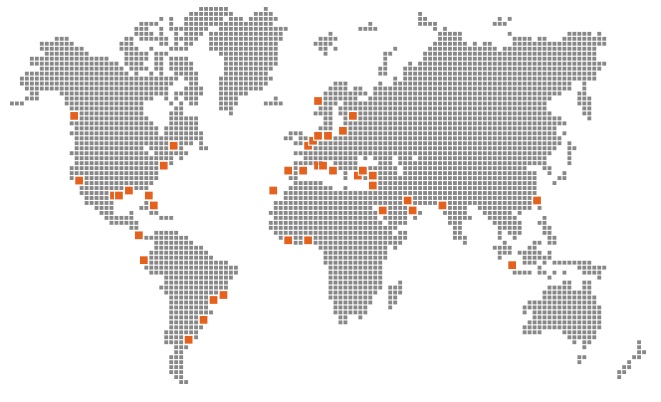
MSC ports and terminals worldwide. From: https://www.tilgroup.com/terminals
Gianlugi and wife Rafaela are reckoned to be worth $8.7 billion, putting him at number 230 on Forbes’ billionaire list. Now 80, Gianluigi stopped being CEO of the company in 2014 and now oversees it as its Chairman.
Keeping it in the family, his son Diego Aponte is now President. Daughter Alexa is the Chief Financial Officer, while her husband is Pierfrancesco Vago, the Executive Chairman of MSC Cruises. The MSC Zoe, which spilt chemicals into the north sea last year, was named after their daughter, as is the voice-activated digital personal assistant developed by the company.
MSC businesses: shipping, ports, lorries, cruises, ferries… and an island
Container shipping makes up the bulk of MSC and the Aponte’s business activity. Here are some stats: it is the second largest container cargo business worldwide, with operations in 155 countries, employing 47,000 staff across 510 vessels. MSC boasts it has shipped “almost every conceivable type of cargo to destinations all around the globe”. Its customer list is likely to be long and to include pretty much every major company that makes something and ships in by sea.
A few we have found include: fruit firms Carlo Porro and Agricola Famosa, plus Exporters and growers of Australian citrus fruits; Sucafina, a coffee company in partnership with Nestle and accused of some pretty dubious labour practices, and lots of chemical and petrochemical manufacturers.
As well as shipping goods, the Apontes also run and own terminals at ports to process the containers on and off ships, through its Terminal Investment Ltd business, which the Apontes co-own with Singapore’s sovereign wealth fund and investment firm Global Infrastructure Partners. They are spreading across the world, with 39 terminals in 26 countries.
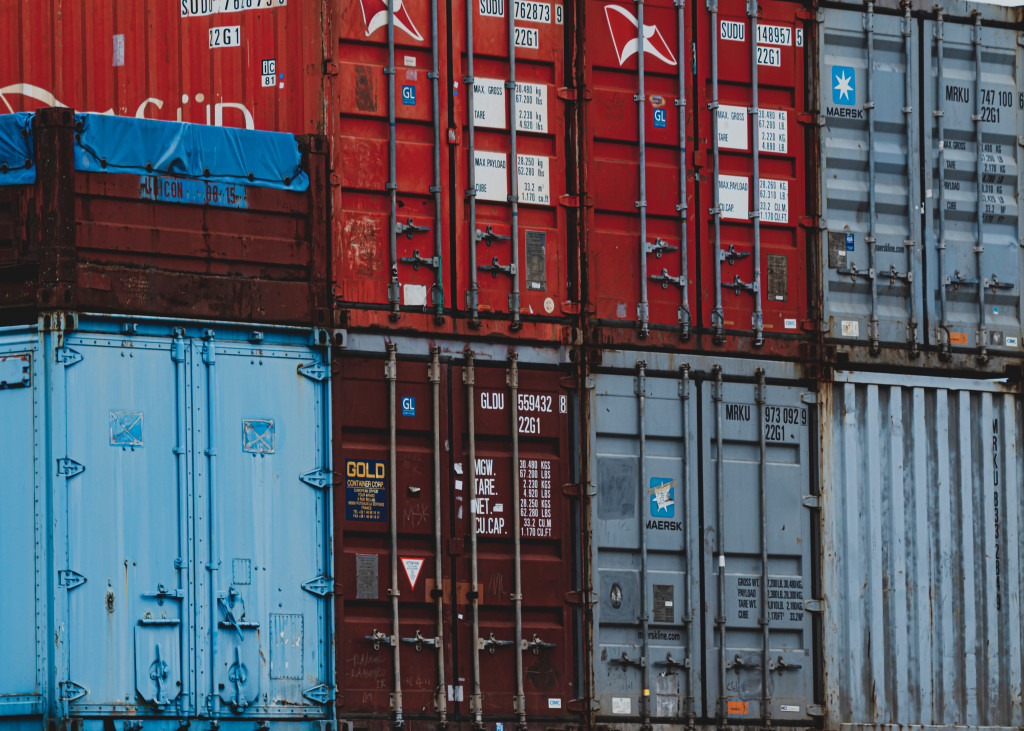
Terminal Investment Ltd global footprint
Then, once the goods have been unloaded, MSC’s Medlog Transport and Logistics business transports them from ports to warehouses or wherever else they need to be sent. The division now works in 70 countries.
MSC is also moving into islands. The company has bought Ocean Cay, a small island in the Bahamas and is making it into a luxury tourist resort. It holds a 100 years concession for the island, which will provide a docking point for MSC cruises along their Caribbean routes. In a nice piece of greenwashing, MSC has established a marine protection park at the island for coral and marine environment protection. Presumably the potential damage that may be caused by immense cruise boats docking on the island will not be part of the display.
Where’s the money?
Switzerland. Or, to put it another way, we don’t know. Because MSC is privately-owned by the Apontes and Swiss-registered it does not have to publish financial results that give a picture of its overall affairs. Records in the UK company register for their UK operations show Gianluigi and Rafaela are the ultimate owners of the MSC group through the Swiss-registered holding company MSC Mediterranean Shipping Company Holding SA. However we do not know exactly how the money travels through the MSC group as accounts are not published.
The estimate used by financial analysts for MSC’s overall annual revenue is $28 billion but we do not have any details for how much profit it makes from this. Of course, these numbers were posted before Covid-19 hit. But while MSC will take a serious hit from the pandemic, they are not expected to be finished by it. And if smaller rivals go down, MSC may be able to take their old business.
MSC Cruises is the only division that publishes financial results, perhaps because it is the only part of the business that raises financing through public debt markets that require more financial disclosure. These show it is a relatively small part of the overall group, but a rapidly growing one, at least pre-COVID. The cruise business’ revenue increased from €1.9bn in 2016 to €3.2bn in 2019. In 2019 MSC Cruises made a profit of €405m from this. Revenues and profits will have been hit by COVID but MSC has started operating cruises again and appears to be hoping to go back to something like normal business in the next year.
The bigger MSC shipping division does not appear to have borrowed through financial exchanges. The big question then is who is providing the financing for such a capital intensive business. MSC is unlikely to be funding its infrastructure simply through its profits or from money invested by the Apontes. Banks, possibly Swiss banks, would be a good bet, but thanks to the secrecy provided by Swiss regulations, we do not know.
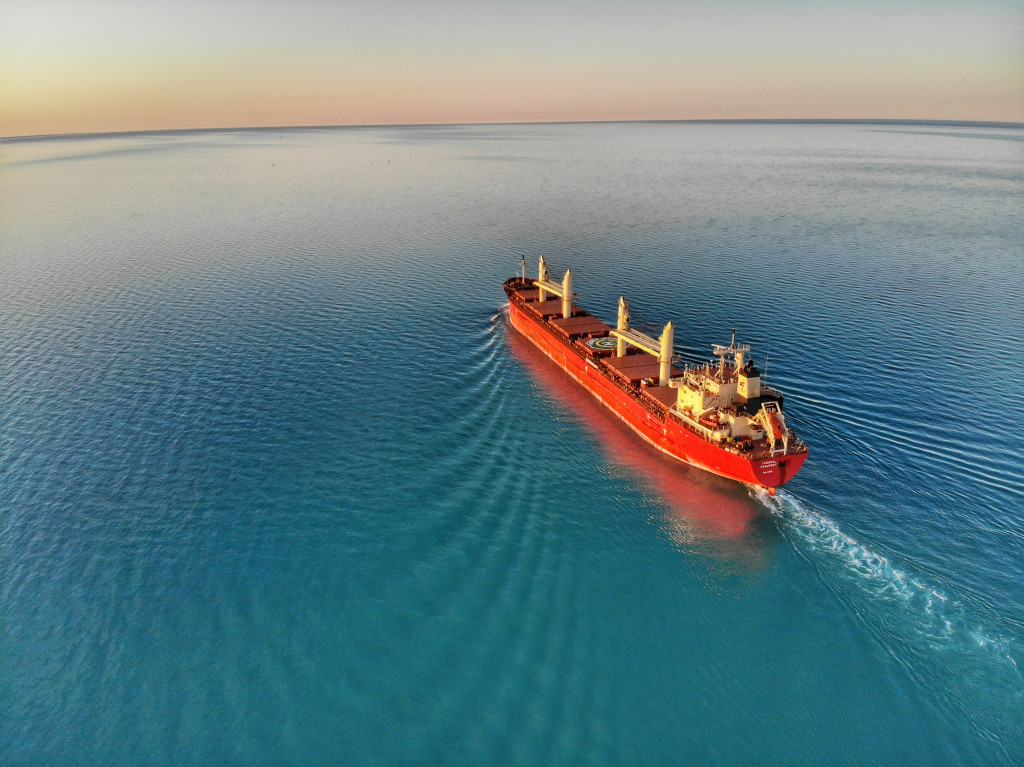
The supply chain
Who else gains from the MSC’s work? Its ships are made by the world’s major shipbuilders, including the Chantiers de L’Atlantique shipyard in Saint-Nazaire, France, the Fincantieri shipyard in Monfalcone, Italy and South Korean giants Samsung Heavy Industries and Daewoo.
MSC lists over 570 ships on its website and just over half of these are owned by MSC itself. The others are owned by a multitude of different shipping companies from over 25 countries, with Germany the biggest single provider. Over 99 of MSC’s 570 Cargo ships are owned by 27 different German companies. Of these, 12 are owned by NSB Group, a large ship management company, which owns more of MSC’s cargo ships than any other company. Ironically NSB group boasts sustainability as being at the top of their agenda, despite the catastrophic consequences the industry has on the planet.
Based in Athens, Contships management is another leading provider of MSC ships, owning nine of MSC’s cargo ships in total. Curiously, leading arms company BAE Systems also owns an MSC ship, through its BAE Systems South Alabama subsidiary. The ship operates under the name “MSC Alabama”.

The insurance industry also makes good money from MSC and other shipping companies. We have found British companies insure 80% of MSC’s cargo ships. These companies include Britannia Steamship Insurance, London P&I, North of England P&I, Shipowners Mutual P&I, UK P&I and West of England P&I. The rest of the fleets are insured by Norwegian & Swedish insurance companies: Skuld P&I (Norway), Gard P&I (Norway) and Swedish Club.
All ships fly the flag of the country they are registered to. Although the majority of MSC’s cargo ships are owned by companies registered in Europe, many fly the flag of Liberia or Panama. This is part of the concept called the “flag of convenience”, when a ship flies the flag of a country other than the country of ownership. This allows companies to cut registration costs and exploit lenient regulations in relation to labour laws, tax and more. Due to this, more ships are registered in Panama than anywhere else in the world. The MSC Zoe for example, which despite being owned and run by the Swiss-based company MSC, it’s registered in Panama and flies their flag.
